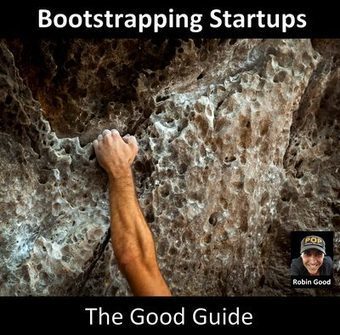"In the age of startups and micro-enterprises, the first thing you hear about, when it comes to creating a new company, service or digital product is a whole new glossary of words starting ranging from venture capital to angel investors."
Research and publish the best content.
Get Started for FREE
Sign up with Facebook Sign up with X
I don't have a Facebook or a X account
Already have an account: Login
 Your new post is loading... Your new post is loading...
 Your new post is loading... Your new post is loading...
|











If you can boot strap your venture then do so before talking to investors. Gather around you people who have no vested interest in your company except your success and will speak honestly to you.
Profitabilité vs. service rendu. Tout se décide dès le début